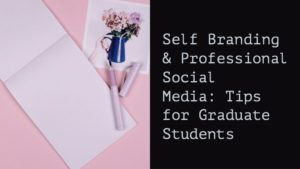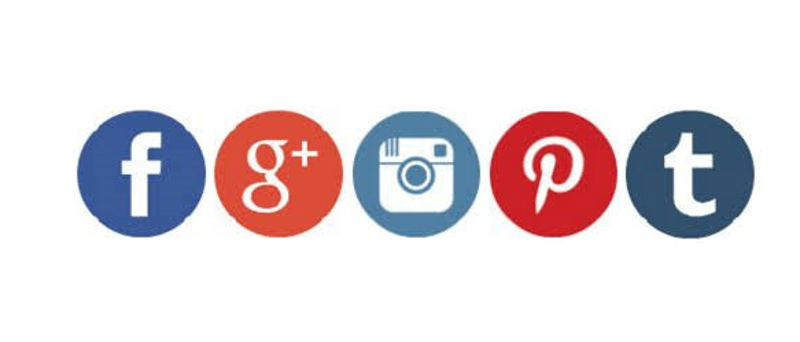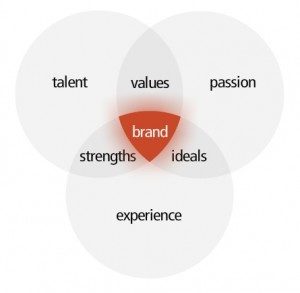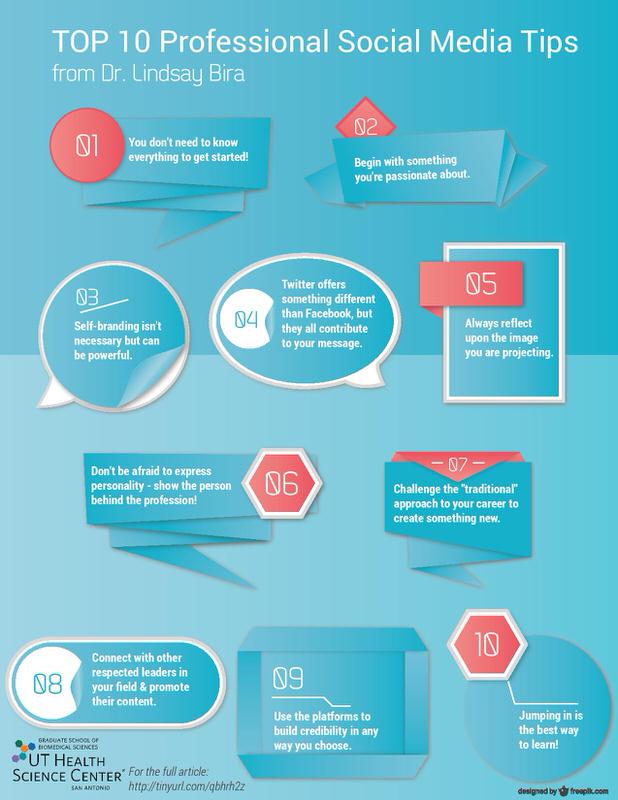The Career Series: Self Branding & Professional Social Media Tips for Graduate Students


Social media is huge. We have Facebook, Instagram,
Twitter, Pinterest, LinkedIn, Google+, etc. These platforms began as a means to connect people socially, and have now also become powerful (and necessary) business tools.
They are smart, simple, and fast – a quick way to gather followers and promote content! It can be difficult to figure out when and how to get involved, particularly if you’re not yet sure of a business plan. My stance, though, is that you don’t need to know everything to get started, and you can benefit from creating a professional social media
presence regardless of your career stage.
I have my Ph.D. in clinical health psychology and I launched myself semi-blindly into the world
of professional social media and self-branding to begin developing my business while doing my postdoctoral residency. In my business, I am working as a coach, leading meditation groups, and generally promoting health and wellness in the community.
I’ve realized that one of my strengths is being the liaison between the research world and the public,
helping to engage others in order to distribute complex and important information in a digestible and meaningful way. I am currently using social media as a space to promote my initiative and disseminate information I feel passionate about, information that may not otherwise be accessed by others.
However, I had some qualms about self-branding and exposing my professional persona on such public platforms. In psychology, especially clinical psychology, you are trained to limit your disclosures and adopt a discreet persona to protect your professional image. I think this ‘limited exposure’ approach is common across many academic professions and it seems to be in direct conflict with taking steps toward social media/branding.
Taking such a leap while you are still in school can be particularly anxiety-provoking, as you may not have a concrete vision of what you want to do and you are still being evaluated. Regardless of what stage you are in, the vulnerability in launching yourself into social media is real, and that is scary. The growth potential is also real, and that is very exciting. Times have changed – people now expect quick access to information and even want to see the person behind the profession. Thus, there are many benefits to making yourself accessible, if you are thoughtful about it.

Like everything in life, social media is
really about what you make it. I don’t know about you, but my personal Facebook page looks like I’m traveling
and having fun all the time, because that’s the content I choose to promote there
Do I discuss running statistics
or post pictures of psychotherapy? No! The latter breaks confidentiality and I personally don’t find stats exciting. I
make the choice to focus on fun, and have made my personal page very private to protect this expression.
 On my professional pages, which are very public, the focus is much different. I follow organizations in my field and post late-breaking research articles with my interpretation attached. I intentionally construct posts that are motivational, inspirational and thought-provoking. I advertise my community group and encourage people to reach out to me.
On my professional pages, which are very public, the focus is much different. I follow organizations in my field and post late-breaking research articles with my interpretation attached. I intentionally construct posts that are motivational, inspirational and thought-provoking. I advertise my community group and encourage people to reach out to me.
I use Twitter in particular to network with and support other professionals and students in the health and wellness fields.
My posts are often shared by others and I stumble across interesting content from other users that shapes what I promote, as well. My point is that with social media, YOU choose your content and how to control it, and thus, you can build your image and develop credibility in any way you choose.
If you still feel nervous about using social media professionally, remember that you don’t have to self-brand and use your real name, but can use a pen name for anonymity. I have several graduate student Twitter followers that have made accounts named “Psychology Facts” or “Neuroscience Research.”
If a future employer searches their name, these accounts will not be found. However, these students can
include their social media involvement as a line on their CV, which would be further support their expressed passion, their drive to create something new, and their ability to effectively use
technology to connect and network with others.
 Self-branding and social media challenges the traditional model of academia, carves out a unique career path, and makes you (or just your content) accessible to the public. I view it as the creative side of scientific research and a way to express myself as an individual within my profession. I have unique strengths; expressing them
Self-branding and social media challenges the traditional model of academia, carves out a unique career path, and makes you (or just your content) accessible to the public. I view it as the creative side of scientific research and a way to express myself as an individual within my profession. I have unique strengths; expressing them
effectively and making meaningful connections with others in turn gives my field strength.
Sometimes the appropriate limit of effective professional expression is hard to gauge, especially if you’re trying to express some personality in your posts. As with all things, it’s a learning
process and a trial-and-error chance to become better at connecting with others. Social media is constantly evolving and your interaction with it will be too. Allowing yourself that
process and seeing what it might have to offer could lead to something that wouldn’t have been possible otherwise!
 So my question to you is this: How might you create content that will represent your interests and showcase your strengths through social media?
So my question to you is this: How might you create content that will represent your interests and showcase your strengths through social media?
I have seen the benefits of self-branding and professional social media, even early in a career path. I believe there are limitless possibilities, as there are no boundaries on creativity and no ceilings to social media. My business has been possible through these platforms and I am excited to see what happens, as social media provides unlimited growth potential.
Check out my website, professional Facebook page, and Twitter to see more about how I have used self-branding and social media to shape my career, and feel free to contact me with any questions!
